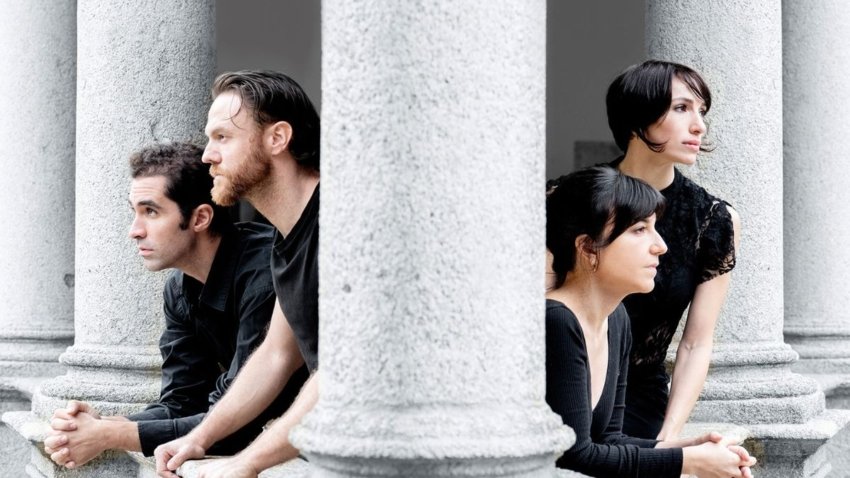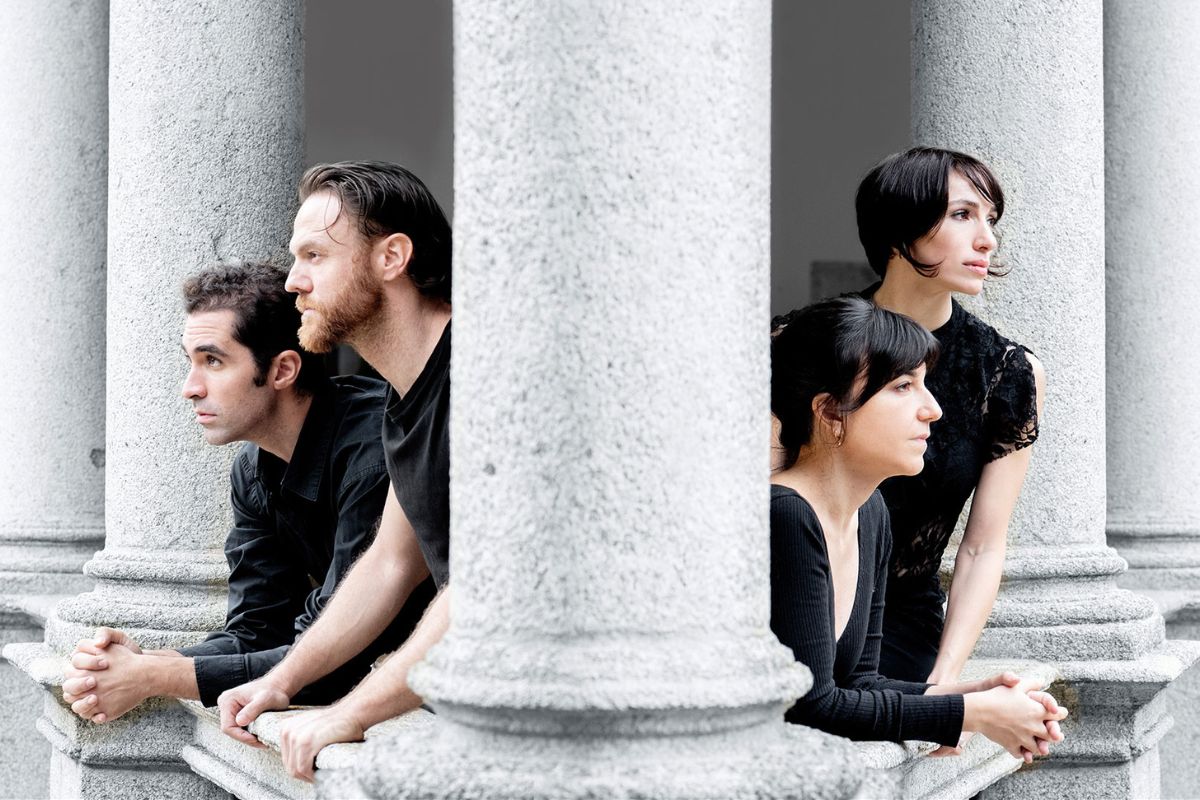
Shakespeare reflects on friendship and love
The two Hidalgos of Verona is a comedy of William Shakespeare that explores the tensions between friendship and love. Alfredo Noval, Manuel Moya, Irene Serrano and Rebeca Matellánamong others, star in this story about betrayal and forgiveness. The production, premiered in Madrid, will stop for two only days, on July 18 and 19, at the Amphitheater of the Greek Theater.

Manuel Moya, Alfredo Noval, Irene Serrano and Rebeca Matellán Protagonizan ‘The two Hidalgos de Verona’
One of Shakespeare’s first comedies
This is one of Shakespeare’s first works, inspired by The Siete Books of the Diana of Jorge de Monemayor. Although it was written around 1590, his first mention was made in 1598, and was published in the First Folio in 1623. Despite being little represented, he was a first step towards the High comedies they would achieve perfection with works like Nights of kings.

The British director again directs a Spanish cast, after the success achieved with ‘La vida es sueño’
A clear influence on ‘Romeo and Juliet’
The work shares items with Romeo and Julietas the youth love and the figure of the father opposite the love of the daughter. Shakespeare also introduces resources that would perfect later, such as the woman disguised as a man and the forest as a place where those who do not fit into society find refuge.
Shakespeare raises the debate between friendship and love, asking if a friendship as deep as Valentín’s and Proteu can be more important than romantic love. Irene Serrano (that Júlia plays) says: “Falling in love has little to do with the other person, he talks about your own feelings; little has to do with ‘loving’ someone ‘. Thus, the work invites to reflect on affective relationships and how sometimes love is confused with obsession.
Betrayal, forgiveness and a bitter end
The plot continues Proteu and Valentín, two friends of Verona. Valentín travels to Milan, while Proteu falls in love with Júlia. When Proteus arrives in Milan, he falls in love with Silvia, Valentín’s promise, and accuses him of the Duke. Valentín is banished and becomes leader on the one hand in the forest of Mantua. Júlia, disguised as a man, discovers Proteu’s infidelity. In the end, Valentín Salva Silvia from being raped by Proteu, the Duke accepts the marriage between Valentín and Silvia, and Proteu regrets and returns with Júlia.
Although the work follows the rule of comedies of the Golden Age with marriage agreements at the end, the treatment of disloyalty and the contempt for female figures does not reson with our contemporary gaze. Irene Serrano reflects: “I was really surprised by Silvia’s silence in much of the end. It seems to me a challenge to tell this story from a current point of view.”
Reflections on love and betrayal
Serrano explains that during the creative process he was very reflecting on heterosexurated relationships and friendship between men and women. “Declan told us how all these Shakespeare’s works look like a story about the discomforts of heterosexual relationships. These are works on sentimental education. Falling in love has little to do with the other person, he talks about you, of your own feelings.”
Along Alfredo NovalProteum’s relationship with Valentín is based on an emotional adherence so strong that it becomes a “monster”. “What moves protects everything he does is that he feels displaced from Valentín’s life. He does not conceive of life without him, and this grip becomes a force that destroys everything in his path,” says Noval. Manuel Moya He adds: “It is a deep, pure union, and talking about it as a gay relationship does not reflect its essence. We talk about pure love that also entails loss.”

Proteu and Valentine are ‘The two gentlemen of Verona’ who debate between their friendship and love
The two female protagonists
Júlia, in love with Proteu, dresses as a man to follow him and know if he loves him. “When you are obsessed with a love, you do not see the other person. What I like most about the character is that, despite being faded, he maintains his sense of humor to move on,” says Irene Serrano.
Silvia, Duke’s daughter, is in love with Valentín, although her father wants to marry her with Turio, a man who hates. Silvia wants to achieve freedom to control her life and her social status. “The three men try to fall in love, but she wants to run away from the control of her father,” she says Rebeca Matellán.
In this emotional journey, Silvia is aware that Valentín and Proteu have a very special connection that leaves her out. “Proteu draws Valentín and also Júlia. Silvia knows about betrayal and does her best to not be part of it,” says Matellán.
A British look at Shakespeare
Declan Donnellan and Nick Ormerod are responsible for this adaptation of Shakespeare, with which they wanted to provide a fresh air to the classics. “What we can only interpret are the situations that happen to the character,” says Rebeca Matellán, about his way of understanding the theater.

Declan Donnellan and Nick Ormerod are the founders of the Cheek by Jowl company and great experts at Shakespeare
After two years of touring with Life is suethe team has created a special connection that makes the process easier. “The work of declanning with the actors is very inspiring. It makes us rethink how we have faced the trade before,” says Irene Serrano.
More information, pictures and entries:










